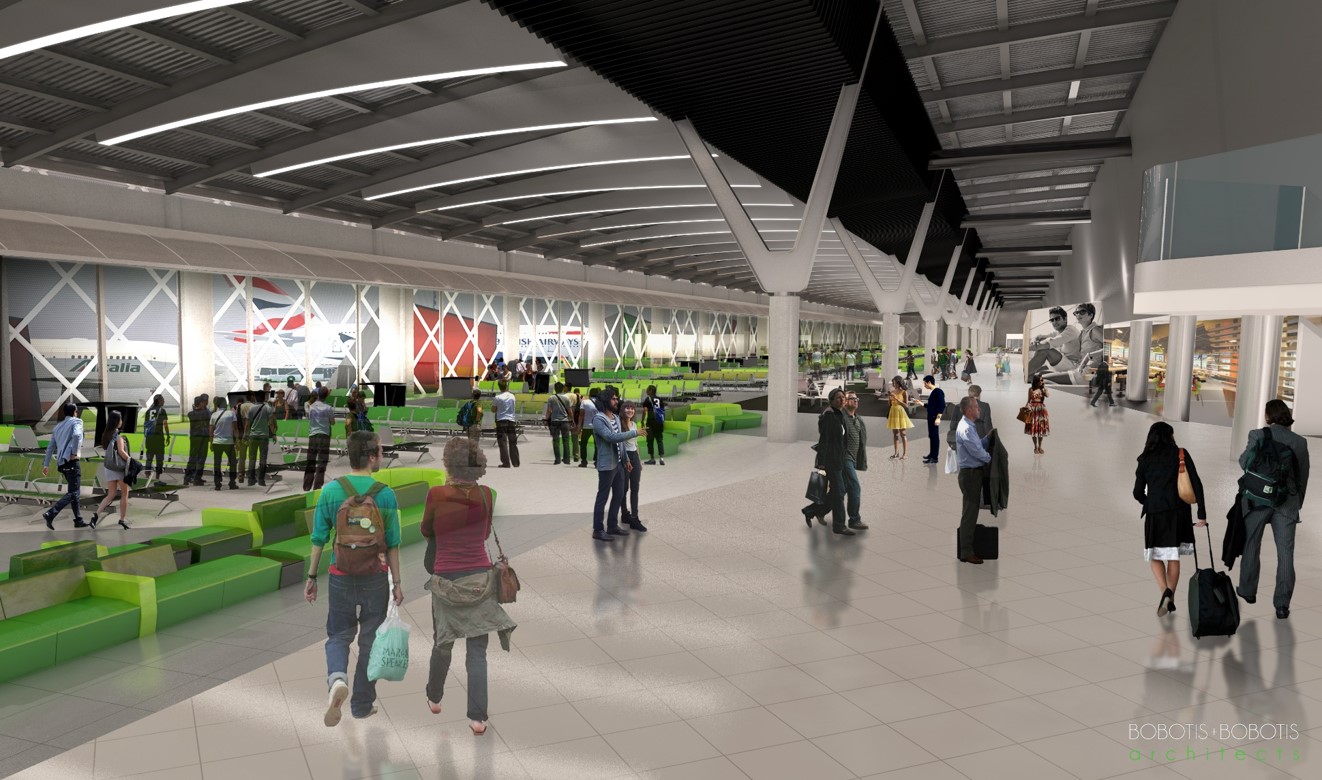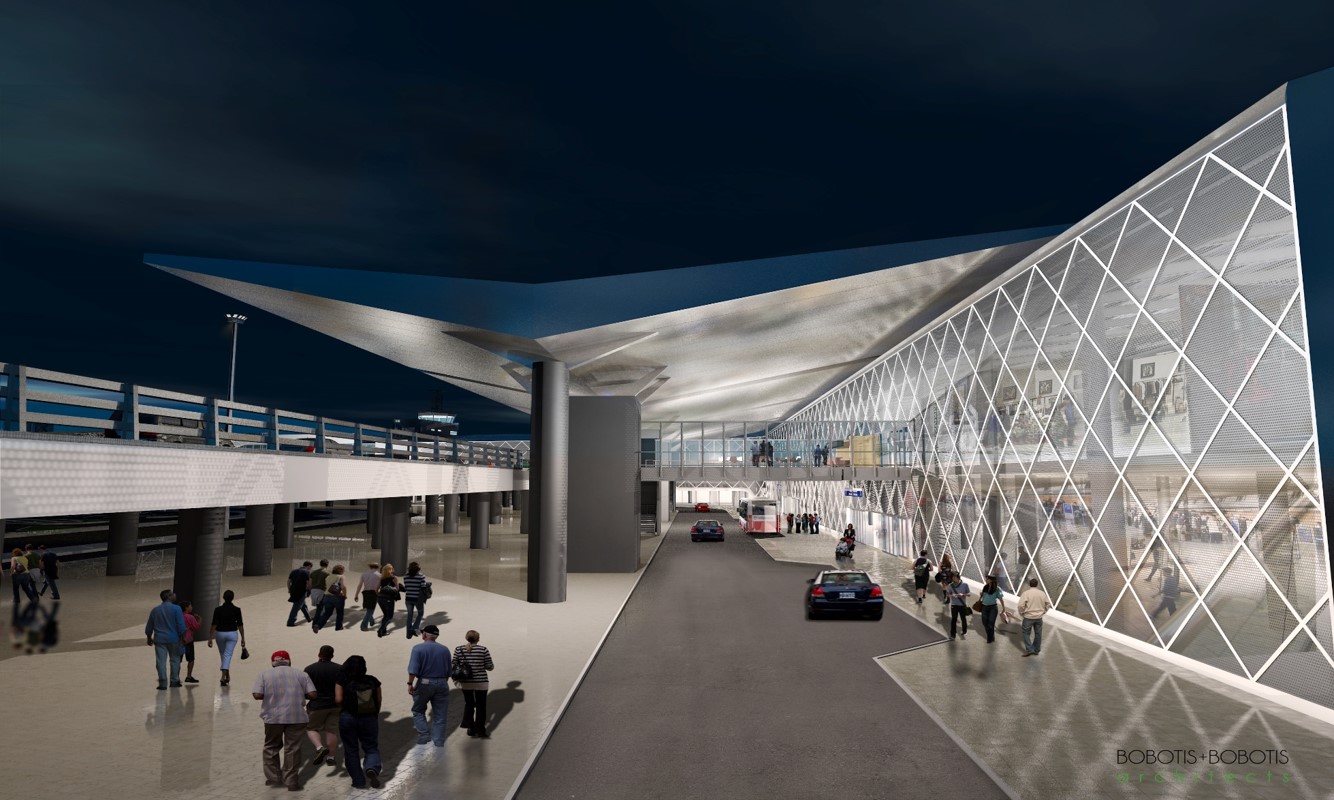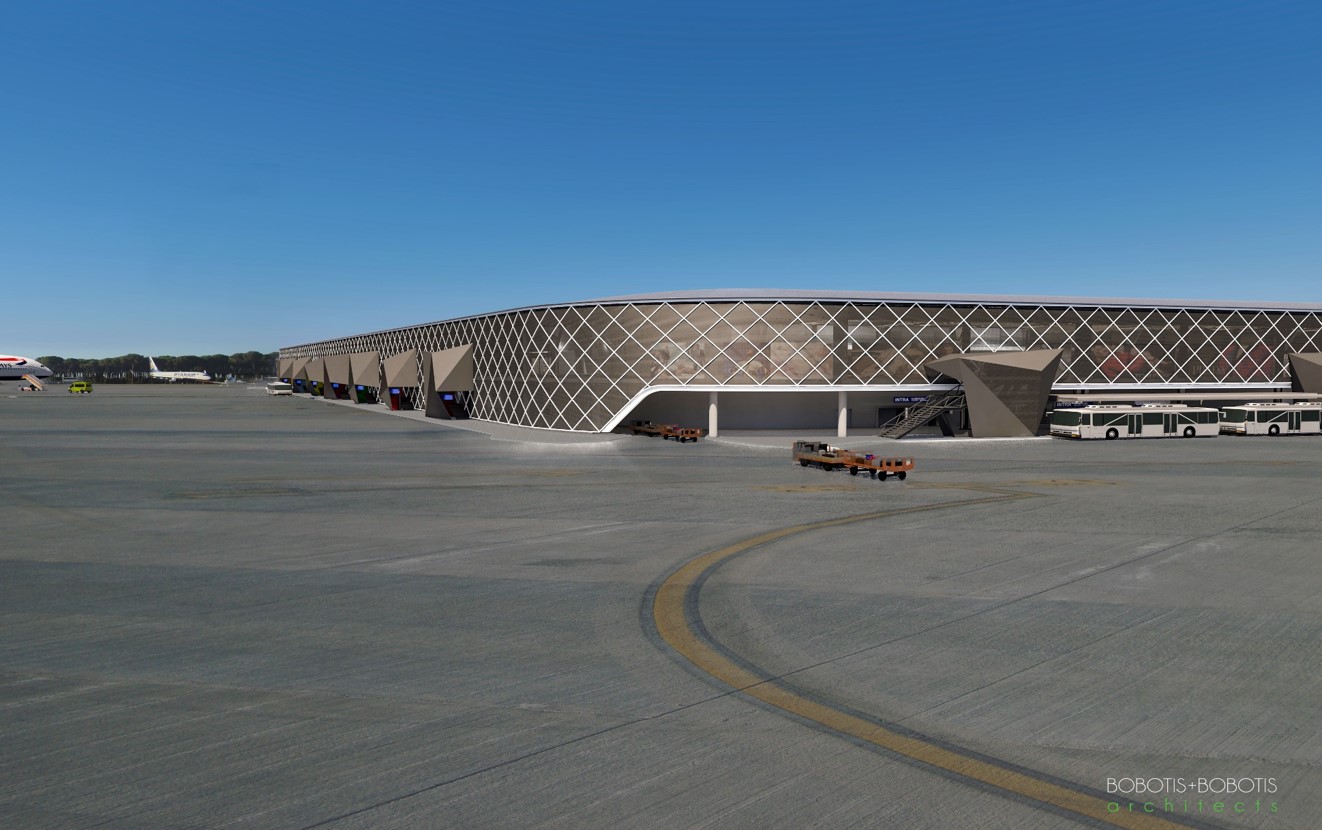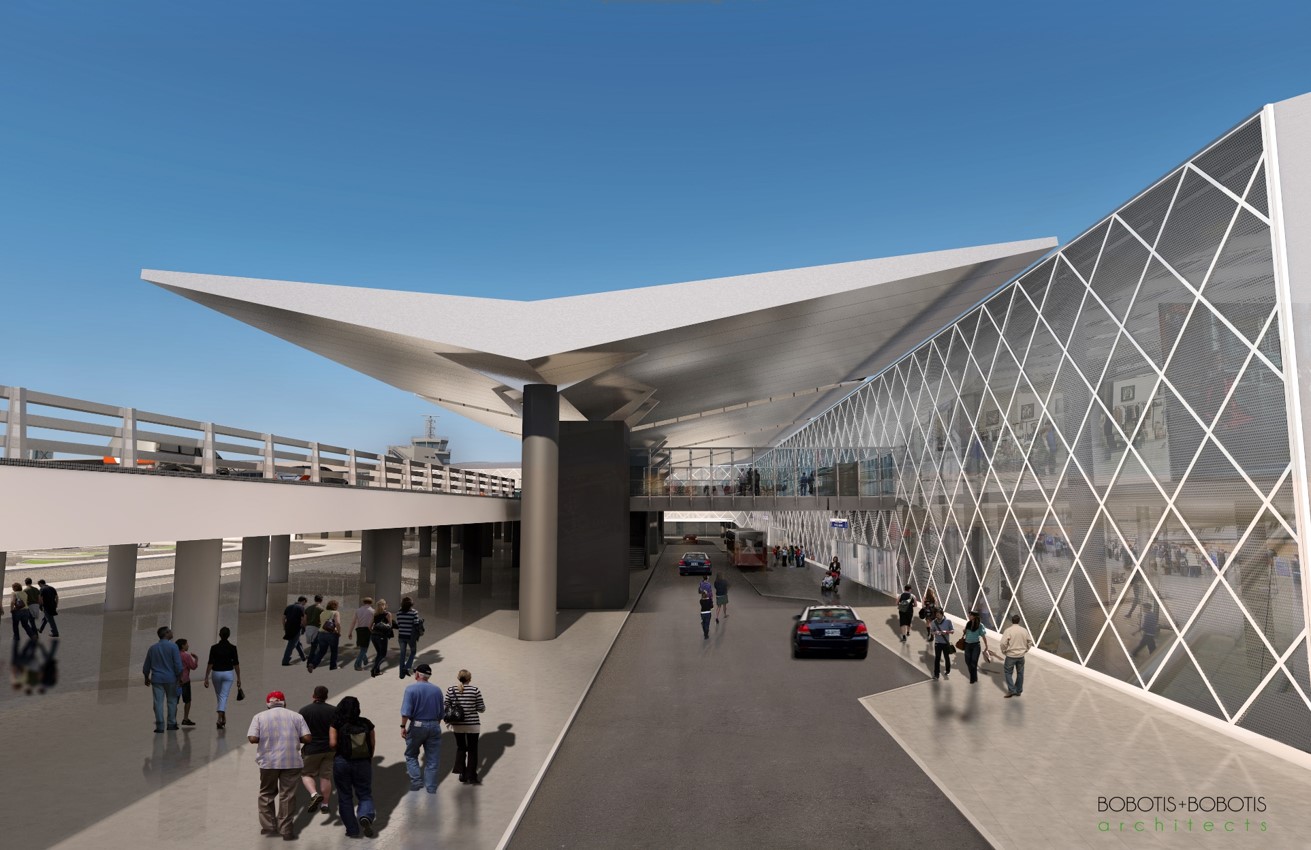Fraport Greece Presents the Future of Thessaloniki Airport
Focus on enhanced comfort, safety and functionality to provide an excellent travel experience for passengers – Passenger traffic expected to increase 48 percent by 2026
Thessaloniki – Fraport Greece held an official event today at the Thessaloniki Chamber of Commerce and Industry (TCCI) to present its future plans for Thessaloniki Airport (SKG) – the largest of the 14 Greek Regional Airports soon to be operated by the consortium. By improving facilities and customer service at SKG, Fraport Greece will be enhancing the airport’s image and launching a new era for tourism in Thessaloniki and the entire Makedonia region. This event commences a nationwide roadshow allowing Fraport Greece to inform stakeholders about future plans at the other 13 airports in the concession project.
TCCI chairman Dimitrios Bakatselos welcomed guests to the event and briefly described the importance of Fraport Greece’s investment and commitment to the long-term economic vitality of the region. The entire management team of Fraport Greece took part in the keynote presentation to stakeholders: Alexander Zinell, chief executive officer (CEO); Vangelis Baltas, chief financial officer (CFO); Ian Matheson, chief operations officer (COO): and Bill Fullerton, chief technical officer (CTO).
Fraport Greece’s team highlighted the goals of further developing Thessaloniki and the surrounding Macedonia region into a highly attractive destination; and to strengthen Thessaloniki’s role as an important commercial, business and tourist center – a hub and a reference point for Southern Europe.
Plans unveiled to the participants illustrated how the SKG passenger terminal will be revamped and modernized, while commercial areas will be remodeled in accordance with international standards. In addition, Fraport Greece described how it is proceeding with new agreements with airlines and companies, aimed at extending the tourism season and increasing the number of tourists, with a special focus on markets that already have a strong presence in Thessaloniki. In particular, SKG is expected to experience a 48 percent increase in passengers by 2026.
Focusing on comfort, safety and functionality, Fraport Greece will upgrade the existing infrastructure and launch construction works to create a modern and customer-oriented environment at Thessaloniki Airport. Significant improvements to be made – which will increase both capacity and service quality – will include a 47 percent increase in the number of check-in counters, a 75 percent rise in the number of baggage claim belts, a 50 percent increase in the number of gates, and doubling of the number of security lanes. Moreover, all operations at SKG will be optimized to meet international safety and service standards.
The construction works also include improving apron areas, creating new power-in/push-back parking stands for aircraft, refurbishing airside pavement, and building a new fire station that will meet international standards and feature functional design.
Download Makedonia Airport Brochure
– ENDS–
About the Greek Regional Airports Project – A Win-Win Project for Greece:
- The 14 Greek Regional Airports Project is a major private investment. It is considered to be one of the largest concession projects in Greece and presents significant potential benefits to the tourism sector, Greece’s economy as a whole, the people of the regions served by the regional airports, as well as to millions of international tourists visiting beautiful Greece every year.
- In the highly competitive international tourism industry, the 14 regional airports serve as vital gateways for one of the country’s most important sectors. The Greek Regional Airports include 3 mainland gateways (Thessaloniki, Aktion and Kavala) and 11 airports on Greek islands (Chania on Crete, Kerkyra on Corfu, as well as Kefalonia, Kos, Mykonos, Mytilene, Rhodes, Samos, Santorini, Skiathos and Zakynthos). Together, these airports received more than 23 million passengers in 2015 (up 6 percent year-on-year). Around 73 percent of these passengers are international travelers.
- In early 2013, Greece’s state-owned Hellenic Republic Asset Development Fund (HRADF) initiated a transparent, international bidding process for two 40-year concessions to operate, maintain and upgrade seven regional airports under each concession (Cluster A & luster B). The Fraport-Copelouzos consortium participated in this tender process which attracted leading international bidders.
- HRADF selected the Fraport-Copelouzos consortium as preferred bidder in November 2014 for the 40-year operating concessions for both Clusters A and B, based on the highest bid of 1.234 billion euros for both clusters.
- Fraport and Copelouzos Group established their joint company Fraport Greece in 2015 to act as the concessionaire for the two concessions.
- On December 14, 2015, Fraport Greece signed contracts with the HRADF and the Greek state for the 40-year concessions for the two clusters. The contracts are based exactly on the same bid submitted by Fraport-Copelouzos and selected by HRADF in November 2014.
- At the time of the project closing full payment of the €1.234 billion euros upfront concession fee will be made by Fraport Greece in tandem with the takeover of operations at the airports. Along with the upfront concession payment, an annual fixed concession fee of 22.9 million euros, plus an annual variable concession fee will be paid.
- The Greek Regional Airports are not being sold. Ownership is retained by the Greek State.
- During the 40-year concession period, Fraport Greece will be responsible for the operation, maintenance and upgrading of the 14 Greek Regional Airports. Under the contract, around 330 million euros will be invested by Fraport Greece in improving the airports during the first years up to 2020. In subsequent years, further investments can be made for maintenance and possible capacity expansions, depending on traffic volumes – totaling more than 1 billion euros in investments (including the 330 million infrastructure investment in the initial phase).





